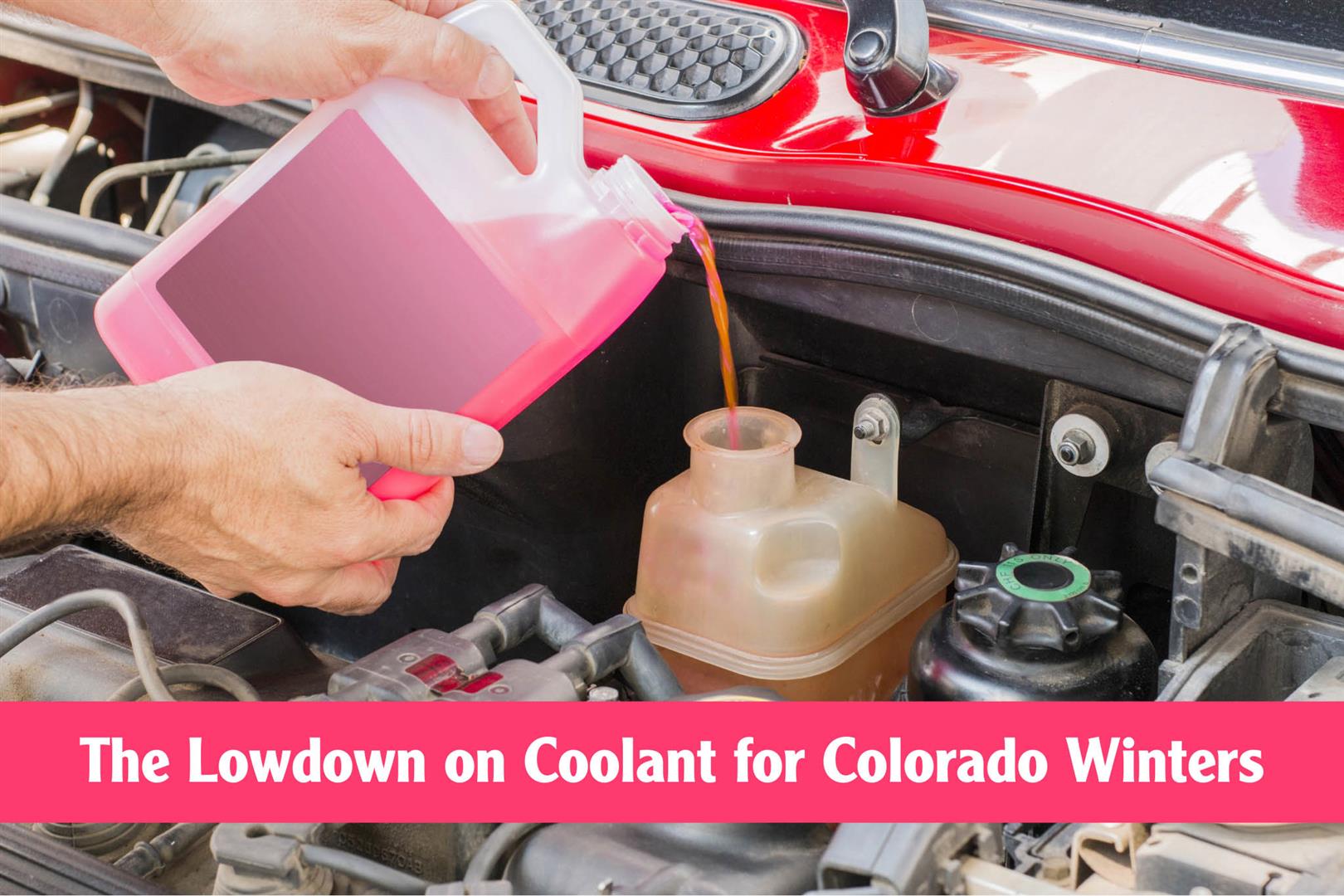
As temperatures start to dip here in Boulder, it’s time to make sure your vehicle’s coolant is up to the challenge of Colorado’s winter months. You might think of coolant (or antifreeze) as just a way to keep your car from overheating in the summer, but it’s just as critical for keeping your engine safe in the winter. Here’s a quick guide on why coolant matters and how to keep your engine running smoothly through the cold season.
What Does Coolant Do, Anyway?
Coolant is a mix of water and antifreeze, circulating through your engine to maintain the right temperature. In the summer, coolant prevents your engine from overheating. In the winter, it prevents the water in your engine from freezing. Without proper coolant levels and the right antifreeze mix, your engine could freeze, crack, or overheat—all of which can cause major (and costly) issues.
Why is Coolant Extra Important in Winter?
1. Prevents Freezing and Cracking
When temperatures drop, any water inside your engine could freeze. Coolant contains antifreeze, which keeps it from freezing even in extremely low temperatures. If coolant levels are too low or improperly mixed, the water in your cooling system can freeze and expand, potentially cracking your engine block and causing major damage.
2. Maintains Optimal Engine Temperature
Engines are designed to operate within a specific temperature range. In winter, if your engine runs too cold, it could impact fuel efficiency, performance, and emissions. Coolant keeps your engine warm enough to operate properly, even when it’s cold outside.
3. Protects Against Corrosion
Antifreeze has additives that prevent corrosion in your engine’s cooling system. This is especially helpful during winter, as parts are exposed to cold, moisture, and temperature fluctuations, which can increase the risk of rust and corrosion.
How to Make Sure Your Coolant is Ready for Winter
1. Check the Coolant Level
Open the hood and look at the coolant reservoir (it’s usually marked “coolant” or “antifreeze”). The fluid level should be between the minimum and maximum markers. If it’s low, you may need a top-up—or better yet, consider a coolant flush if it’s been a while since the last one.
2. Verify the Coolant Mix
For Colorado winters, a 50/50 mix of water and antifreeze is generally recommended. This mixture has the right freeze protection for temperatures well below freezing. Some cars may require a different ratio, so be sure to consult your owner’s manual or ask one of our experts if you’re not sure.
3. Look for Any Signs of Leaks
A leaking coolant system can lead to low levels and an engine that’s more susceptible to freezing. If you notice puddles under your car, strange smells, or your temperature gauge acting up, it could be a sign of a coolant leak. If you suspect a leak, it’s essential to get it checked out before temperatures drop further.
4. Consider a Coolant Flush
Over time, coolant can lose its effectiveness and become contaminated. If it’s been more than a couple of years since your last coolant flush, now is a good time to get it done. A flush removes old fluid, along with any debris, and replaces it with fresh coolant, giving you optimal freeze protection for the winter.
When to Come In for Coolant Service
Coolant is one of those things that’s easy to forget about, but keeping it in good shape can prevent major engine problems down the road. If you’re not sure about the state of your coolant, come by our shop for a quick check-up! We can test your coolant levels, inspect for leaks, and make sure your car is winter-ready.
Stay Winter-Ready with John’s Auto Care!
At John’s Auto Care, we know Colorado winters. Our team is here to help keep your car safe and reliable, even in the coldest months. Whether you need a coolant check, a flush, or any other winter prep service, you can count on us to get it done right. Contact us today or drop by our shop for all your winter car care needs!